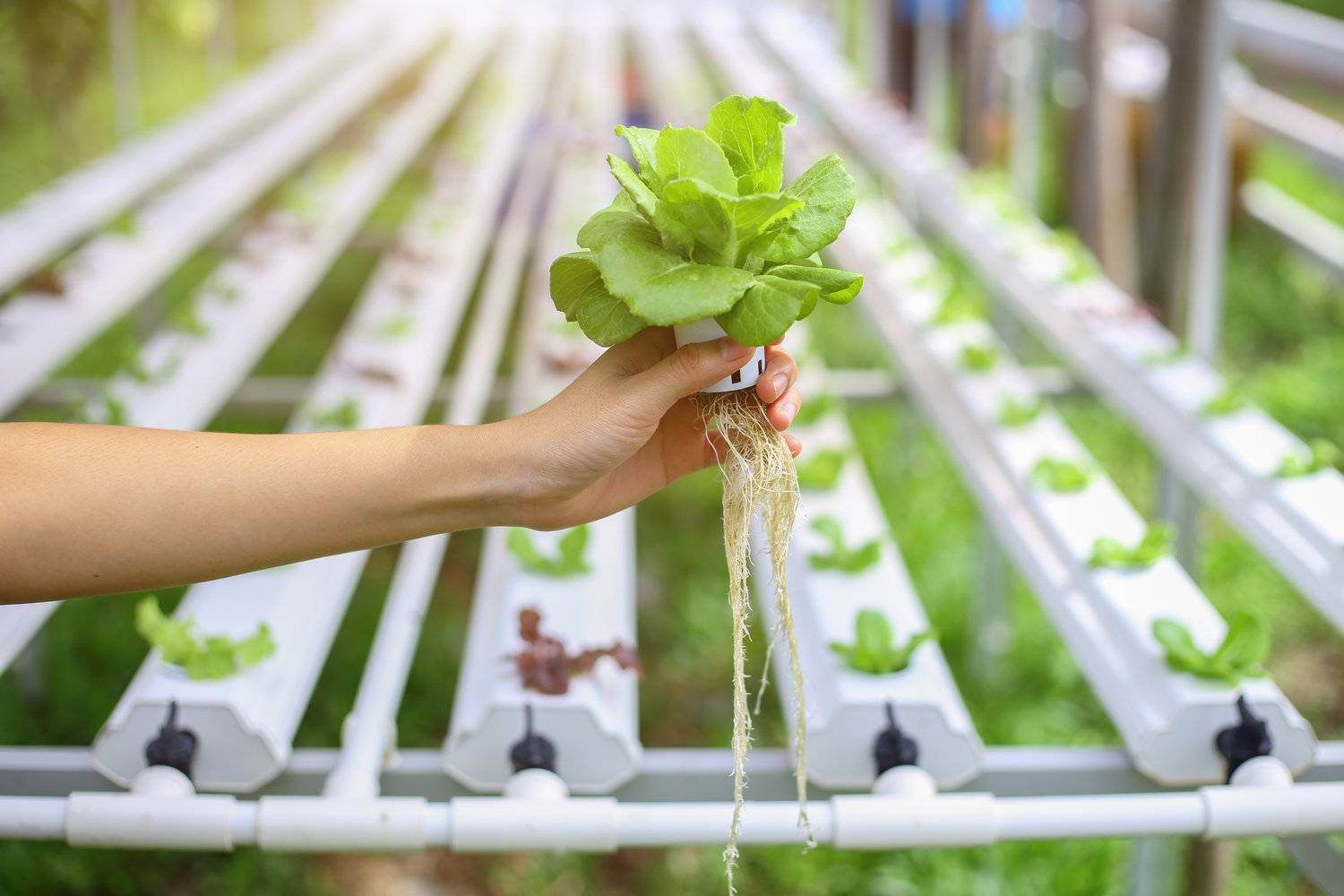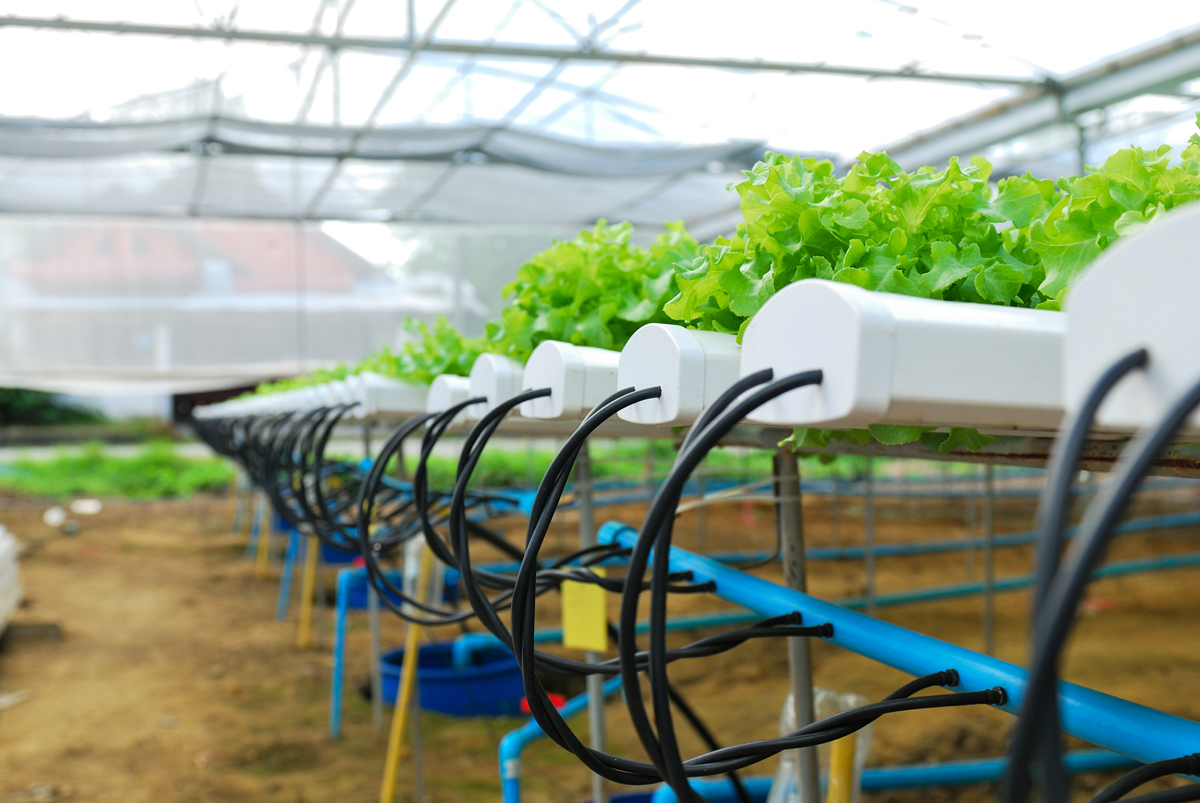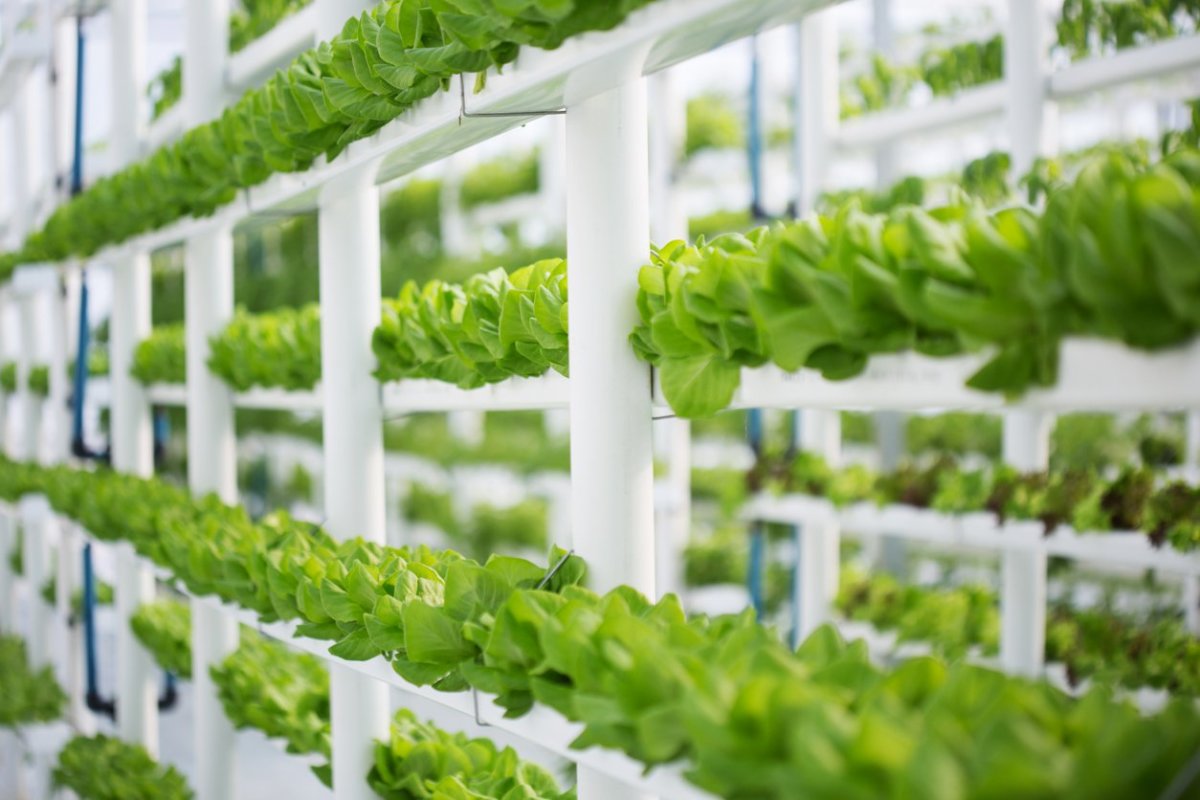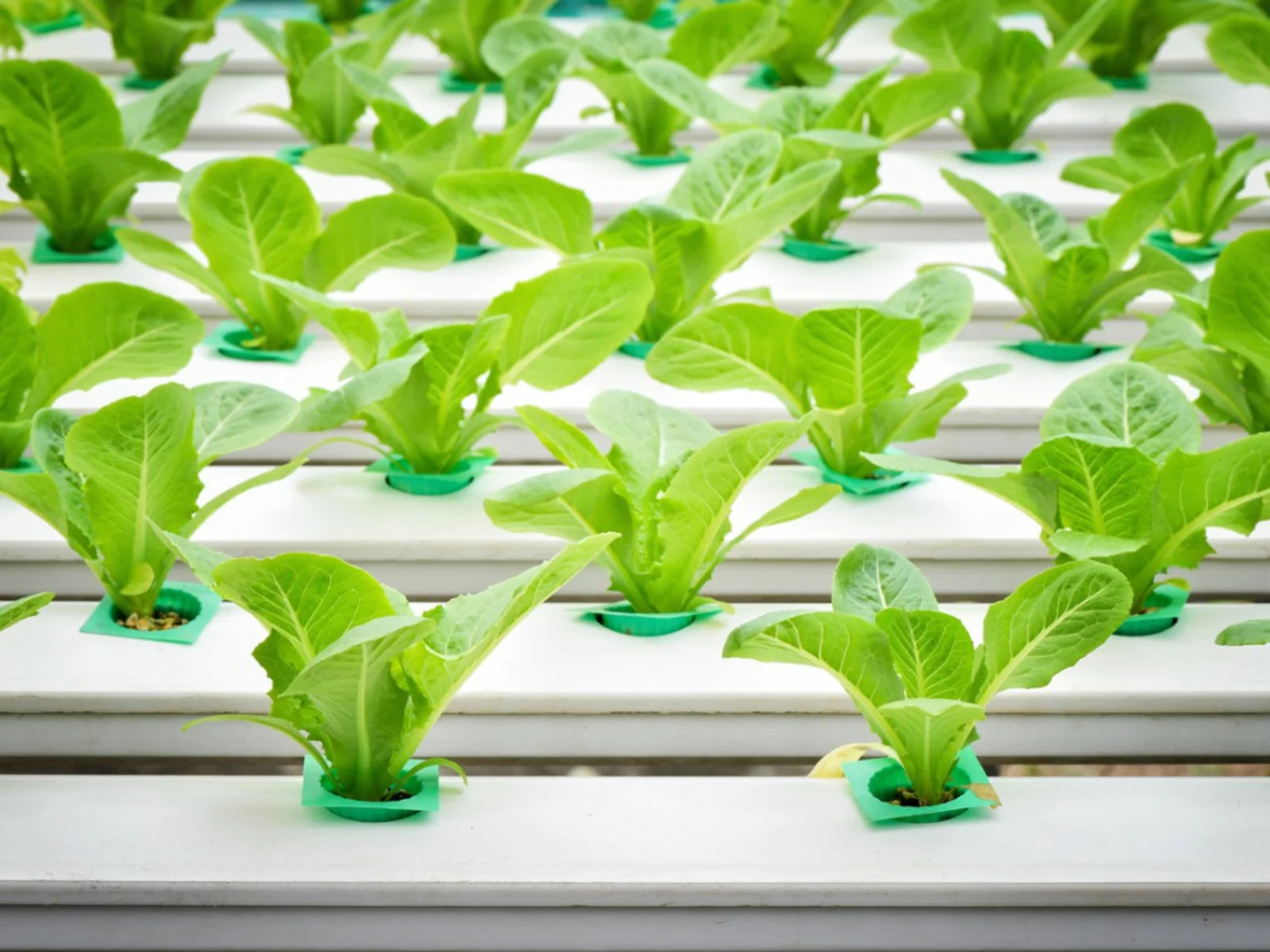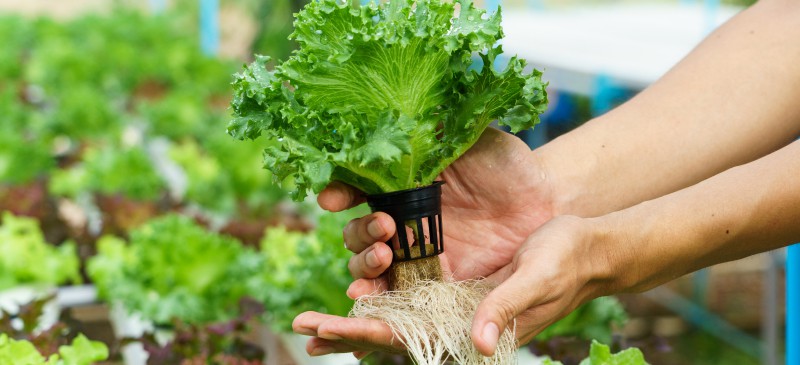Hydroponics: How To Grow Plants Organically Without Soil
Hydroponics, a soil-less method of plant cultivation, has gained significant popularity as a sustainable and efficient approach to growing plants. But did you know that you can also embrace organic practices within hydroponics? By eliminating the use of synthetic fertilizers and pesticides, you can grow plants organically while harnessing the benefits of hydroponic systems.
What Is Organic Hydroponics?
Organic hydroponics is a modern agricultural method that combines the benefits of both organic and hydroponic cultivation. In this type of growing, plants are grown without soil in water-based solutions containing plant nutrients.
This allows for greater control over the growing environment and provides optimal conditions for healthier, faster growth. Organic hydroponics also eliminates the need for using chemical fertilizers or pesticides, making it an environmentally friendly option for growing plants. By removing soil from the equation, organic hydroponics can offer improved aeration, drainage, and nutrient uptake which leads to higher yields in less time.
To maximize yields with organic hydroponics, it's important to carefully monitor pH levels as well as other factors such as temperature and light exposure. With proper care and maintenance, organic hydroponics offers a great opportunity for gardeners to grow healthy plants organically without ever having to use soil!
What Is Organic Growing?
Organic growing is an approach to cultivating plants and vegetables that utilizes natural resources and processes to provide nutrients, pest control, and overall health of the crop. It emphasizes the use of organic matter such as compost or manure as well as beneficial insects, or “beneficials”.
Organic practices strive to create a self-sustaining system in which the soil provides all of the necessary nutrition for healthy plant growth. Beneficial insects are used to maintain balance in the garden by controlling pests that may cause damage to crops. Additionally, no synthetic fertilizers or pesticides are used in organic growing methods.
Benefits Of Organic Growing
Organic growing has many benefits, both for the environment and the consumer. Not only does it provide cleaner crops with an improved taste and smell due to natural flavonoids and terpenes, but it also keeps synthetic fertilizers and pesticides out of our food supply.
Organic farming practices help promote biodiversity, reduce pollution from chemical runoff into water sources, and preserve soil fertility by using composting techniques. Additionally, organic growing is safer for animals as well as humans, creating a healthier environment for everyone involved.
With its numerous benefits to both nature and people, organic growing is becoming increasingly popular amongst growers looking to cultivate healthy plants with minimal environmental impact.
Growing Hydroponically With Organic Nutrients
Growers looking for a more organic approach to hydroponic gardening can now use organic nutrients to feed their plants. By adding organic fertilizers, you can ensure that your plants are receiving the essential nutrients they need while also introducing beneficial bacteria that will boost their flavor and health. Organic hydroponic nutrition is just as easy to use as conventional hydroponic nutrient solutions, and many of them are OMRI certified.
This means you can be sure that whatever product you’re using is free from any harmful chemicals or synthetic compounds. To get started, simply add the recommended amount of organic fertilizer directly into your reservoir and adjust the pH levels according to the manufacturer’s instructions. With some patience and attention to detail, you can grow delicious and healthy produce without ever needing soil!
Choose Your Hydroponic System
When it comes to hydroponic systems, there are a lot of options available. Depending on your needs and budget, you can select from several different types of systems. The most popular type of hydroponic system is the Deep Water Culture (DWC) system which uses buckets filled with nutrient-rich water to house the plants.
Aeroponic systems use misters to spray nutrient-rich mist onto plant roots in order to provide them with nutrition, while Nutrient Film Technique (NFT) systems circulate a thin film of nutrient-rich solution for the plants' roots to absorb. There are also Ebb and Flow systems which fill and empty trays or buckets with a nutrient solution at set intervals.
Each system has its own benefits and drawbacks, so make sure you do your research before selecting one that suits your needs best. No matter which system you choose, always remember that hydroponics is an effective way to grow healthy plants without soil!
Choosing An Organic Nutrient Package
Organic hydroponic nutrient packages are becoming increasingly popular with those looking to grow plants without the use of conventional synthetic fertilizers. When selecting an organic nutrient package, it is important to consider several key factors such as the type of crop being grown, the size of the plants, and the environment they are growing in.
Many organic nutrient packages contain natural ingredients such as kelp extract, fish emulsion, and bat guano which provide essential nutrients for plant growth. Organic nutrient packages are also typically OMRI certified, meaning they meet certain standards set by the USDA's National Organic Program (NOP).
Create A Biofilter To Increase Nutrient Uptake
Creating a biofilter to increase nutrient uptake is an important part of organic hydroponics. The goal of the biofilter is to provide beneficial bacteria and microorganisms that can break down larger, organic molecules into more readily available forms that plants can take up.
Building a biofilter requires several materials such as a container, gravel or other medium, water, and an air pump with an airstone. To create the filter, simply fill the container with your chosen medium and add water.
Place the airstone in the container and connect it to a quality air pump for aeration. Finally, add some beneficial microbial cultures like compost tea or worm castings to provide the microorganisms necessary for breaking down nutrients.
Maintaining Your Organic Hydroponic System
Maintaining a healthy organic hydroponic system is an important part of achieving strong, healthy plants. The key to success is monitoring your nutrient levels, pH balance, and oxygen levels regularly. You should also check the temperature of your grow medium and water, as well as any other environmental factors such as light or humidity.
Regularly flushing your system with fresh water can also help remove any build-up in the lines and ensure that your plants are receiving the right amount of nutrients. Finally, keeping a careful eye on the health of your plants and paying attention to signs of nutrient deficiencies or disease can help you catch problems before they become serious.
Follow Organic Cultivation Guidelines As Much As Possible
Organic cultivation is an important part of hydroponic gardening. When growing plants without soil, it's important to make sure that you follow organic guidelines as much as possible. This means avoiding any synthetic pest control products and being careful about anything you use to clean your hydroponic reservoir or lines.
Additionally, you should also pay attention to the types of nutrients you are using and make sure they are all organic and safe for your plants. Lastly, it's important to pay close attention to the environment in which your plants are growing, such as light and temperature.
Is Growing Organic Hydroponics Plants Actually Possible?
Organic hydroponics is a technique of growing plants in water instead of soil. It is a combination of traditional hydroponic gardening and organic growing practices. However, many experts debate whether this method produces the same quality crops as conventional methods.
While hydroponics can be used to grow healthy and nutrient-dense fruits and vegetables, some argue that it lacks the essential elements found in soil that are necessary for plant health. Additionally, organic hydroponics requires more attention to detail than traditional methods since it does not contain natural nutrients from the soil.
Furthermore, many experts claim that synthetic fertilizers are needed to supplement the nutrient-deficient environment created by organic hydroponics. Despite its potential drawbacks, organic hydroponics is still a viable option for growers looking to cultivate healthy plants without using harsh chemicals or fertilizers.
Organic Hydroponics Under Debate
The debate against organic hydroponics is heated, as some experts argue that it lacks the essential elements found in soil that are necessary for plant health. The primary argument against this method is the soil dilemma, which states that without the presence of soil-dwelling bacteria, nutrients cannot be adequately broken down.
Additionally, opponents of organic hydroponics also claim that synthetic fertilizers are needed to supplement the nutrient-deficient environment created by this method. Furthermore, many suggest that organically-grown plants do not have the same quality or yield as those grown conventionally.
A Dilemma with Soil
The soil dilemma is one of the main arguments against organic hydroponics. Without the presence of beneficial bacteria in soil, it is difficult for plants to take up nutrients from their environment. This lack of microbial activity can lead to nutrient deficiencies and poor plant health. Additionally, opponents of organic hydroponics suggest that synthetic fertilizers are needed to supplement the nutrient-deficient environment created by this method.
Hydroponic Systems Can't Handle the Thickness of Organic Nutrients
Organic nutrients, such as compost and fish emulsion, can be used to supplement hydroponic systems. However, these organic fertilizers are much thicker than synthetic ones, making them difficult for hydroponic systems to process.
The thick nature of organic nutrients can cause the lines in the system to clog up and create an uneven distribution of nutrients throughout the system. In addition, sticky additives like molasses and sugar can also cause problems with nutrient uniformity. To prevent this buildup and scaling, it is important to regularly clean your hydroponic system to keep it functioning properly.
Additionally, adding essential elements such as calcium and magnesium will help ensure that your plants receive all they need for optimal growth despite the lack of beneficial bacteria in soil.
Accumulation of Nutrients Results in the Rise of Anaerobic Conditions
Organic nutrient buildup can lead to an increase in anaerobic conditions. This happens when oxygen levels in the reservoir become depleted over time due to the accumulation of organic material. Without oxygen, root systems are unable to grow and pathogens can start to colonize the system.
To prevent this, regular cleaning of the hydroponic system is necessary to maintain proper functioning. Additionally, adding essential elements such as calcium and magnesium will help ensure that your plants receive all they need for optimal growth despite the lack of beneficial bacteria in soil.
Organic Nutrient Uptake Is Lower In Hydroponic Systems
Organic nutrient uptake is lower in hydroponic systems compared to traditional soil-based systems. This is because soil contains beneficial microorganisms and bacteria which are essential for the efficient uptake of organic matter. In hydroponics, however, these organisms are absent and so nutrient uptake is reduced as a result.
To increase organic nutrient uptake in hydroponic systems, growers must create a biofilter or use specialized media such as peat moss or coconut coir to provide the necessary environment for beneficial microbes to thrive.
The Debate For Organic Hydroponics
The debate for organic hydroponics continues to rage on, as proponents of both traditional and new cultivation methods make their case. While there is no absolute right or wrong answer, each method has its own advantages and disadvantages that need to be weighed carefully.
Supporters of organic hydroponic systems point to the fact that it allows hydroponic growers to control every aspect of their plants' nutrition, including the type and quantity of nutrients used. This can help to ensure that plants receive all the essential elements they need for healthy growth without having to rely on soil-based organisms.
Additionally, organic hydroponics helps reduce water usage due to its closed-loop system design. On the other hand, opponents argue that organic nutrient uptake is lower in this system compared to traditional soil-based systems, making it more difficult for plants to obtain sufficient nutrition.
Soil Growing Falls Short in Water and Fertilizer Efficiency Compared to Hydroponics
Hydroponics is undeniably more efficient than soil-based growing when it comes to water and fertilizer usage. This is due to the closed-loop system design, where water and nutrients are constantly circulated throughout the system.
The nutrient solution never needs to be changed out, meaning you save both time and money. Additionally, because of the more concentrated nutrient solution used in hydroponics, you can stretch your fertilizer further while still providing your plants with all their essential nutrients.
This means that not only do you get better results in terms of growth, but you also don't have to use as much fertilizer as you would with traditional soil cultivation. All these factors combine to make hydroponics a far more efficient way of growing plants than soil-based systems.
Hydroponics has the Potential to Transform Lifeless Urban Areas into Flourishing Gardens
Hydroponics can be a great way to turn an otherwise dead urban area into a thriving garden. Through the use of hydroponic systems, such as vertical gardens or aeroponics, city dwellers can build lush, green environments in even the most unlikely places.
These vertical gardens are ideal for small spaces, making it possible to cultivate a variety of fruit and vegetables without having access to a traditional garden space. Furthermore, hydroponic gardening requires very little water and fertilizer compared to traditional soil-based gardening, meaning that you can grow healthy plants without worrying about wasting resources.
Organic Fertilizers are Still Viable Options for Feeding Hydroponic Plants
Organically grown produce is becoming increasingly popular and hydroponic technology is making it possible to grow plants without soil. While this used to be a tougher task, as thick organic nutrients could easily clog hydro lines, causing system failure and starving your crops, manufacturers have now formulated easy-to-use organic nutrients just for this type of cultivation.
Some of these are even OMRI certified, meaning they are tested to the highest of standards and still deemed to follow organic gardening protocols. Hydroponic systems can provide all the essential nutrient requirements for your plants, while also allowing you to introduce beneficial bacteria that enhance the quality of your produce.
Final Thoughts On Growing Organically Without Soil
Organic hydroponics is an innovative and sustainable way to grow plants without the use of soil. With its minimal environmental impact, this form of cultivation is becoming more popular with both hobbyists and professionals alike.
Whether you are looking for a low-maintenance way to grow your own herbs or vegetables, or simply want to experiment with an alternative method of gardening, organic hydroponics can provide a safe and effective solution.
By following organic cultivation guidelines as much as possible, you can ensure that your hydroponic garden remains free from harmful chemicals and pollutants, leading to healthier plants with higher yields. With the right preparation and maintenance, organic hydroponics can be a rewarding experience for any home gardener.









